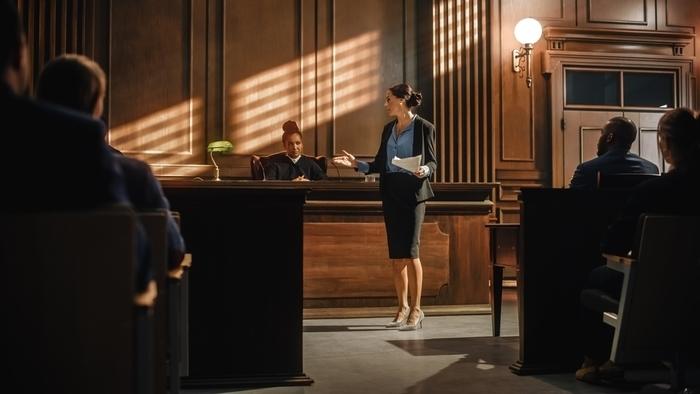If you’ve been charged with a second DWI, you’re probably feeling a mix of fear, frustration, and confusion. That’s understandable—because a second offense is a big deal in the eyes of the law. It’s no longer treated like a lapse in judgment or a one-time mistake. The court sees it as a pattern, and that means harsher consequences, fewer second chances, and far more at stake.
In this beginner’s guide to understanding second DWI offenses, we’ll take a deep, honest look at what happens when a person gets caught driving while intoxicated for the second time. We’re going to cover everything: legal penalties, real-life stories, courtroom strategy, and most importantly—how you can fight back.
Whether this is happening to you, your partner, or someone close to you, the following breakdown gives you the clarity you need to move forward. If you’re wondering what a second DWI really means, you’re in the right place.

What Is a Second DWI?
A second DWI means you’ve been charged with driving while intoxicated, and you already have a prior DWI conviction on your record. The timing of the prior offense does matter. In many states, there’s a lookback period (often 5 to 10 years). If your previous conviction falls within that time frame, this new charge becomes a second DWI, which carries enhanced penalties.
It’s important to note: even if your first DWI happened years ago, it may still follow you—especially in states like Texas where prior convictions often stick regardless of time passed.
Real Example: Brian’s Wake-Up Call
Brian, a 38-year-old construction supervisor from Houston, got his first DWI at 29. He went through probation, paid his fines, and moved on. Nine years later, after a work party, he was pulled over again. He assumed it wouldn’t be a big deal. But because Texas doesn’t forget prior DWIs, Brian now faced mandatory jail time. His second DWI was treated just as seriously as if it had happened two years earlier.
The Legal Definition of a Second DWI
While each state defines DWI a little differently, the core idea remains the same: you were operating a vehicle with ablood alcohol content (BAC) of 0.08% or higher—or you showed signs of intoxication impairing your ability to drive.
When it’s your second DWI, prosecutors don’t just look at the facts of the current arrest. They build a narrative: “This person didn’t learn the first time.” That attitude affects everything from bail amounts to sentencing recommendations.
Here’s what typically elevates a second DWI:
- A previous conviction for DWI or DUI (in the same state or another).
- A prior deferred adjudication or no contest plea that resulted in probation.
- An out-of-state DWI conviction treated as equivalent under local law.
Penalties for a Second DWI: What You’re Facing
This is where things get real. A second DWI carries penalties that are significantly tougher than a first offense.
Jail Time
Unlike a first DWI, which might end with probation, a second offense often includes mandatory jail time. In Texas, for example, the minimum is 72 hours—but it can go up to 12 months in county jail.
License Suspension
A second DWI typically results in an automatic license suspension ranging from 180 days to 2 years. Some states may also require you to install an ignition interlock device as a condition of limited driving privileges.

Fines and Fees
Expect fines up to $4,000 in some jurisdictions—not to mention court costs, license reinstatement fees, and skyrocketing insurance premiums.
Probation and Community Supervision
Probation is common after a second DWI, but it comes with stricter rules. You’ll likely have to complete alcohol education classes, community service, and report to a probation officer regularly.
Criminal Record
A second DWI leaves a deeper scar on your record. It’s not something that disappears easily. Employers, landlords, and licensing boards may treat you differently because of it.
Can a Second DWI Be Dismissed?
Absolutely—but it takes work. While the penalties are harsher, the defense strategies don’t disappear. A second DWI can be dismissed under the right circumstances.
Potential Grounds for Dismissal:
- Illegal traffic stop: If the officer didn’t have reasonable suspicion.
- Improperly conducted field sobriety tests: These are subjective and error-prone.
- Faulty breath or blood test: Machines malfunction, and lab results can be challenged.
- Violation of rights: If your Miranda rights weren’t read or there was coercion.
Dismissals are harder to come by with a second DWI, but a skilled attorney who knows how to challenge the evidence can make it happen. Judges still require the prosecution to prove guilt beyond a reasonable doubt.
How a Second DWI Affects Your Life Beyond Court
Let’s be honest: a second DWI isn’t just a legal issue—it’s a life disruptor.
Employment Consequences
If your job requires driving, you may be suspended or fired. Many employers conduct regular background checks, and a second DWI can make you look unreliable, even if the charge never impacts your work performance.
Insurance Nightmares
Your insurance premiums will likely double or triple. Some insurers may even cancel your policy. You might have to shop for high-risk SR-22 coverage, which comes at a premium.
Family and Social Strain
Relationships often suffer after a second DWI. Your spouse might worry about your judgment. Your kids may feel embarrassed. Friends might distance themselves. This kind of emotional fallout is often worse than the legal side.
Mental Health
Second DWI charges often lead people to feelings of guilt, shame, and depression. It’s not uncommon to feel overwhelmed. If you’re struggling emotionally, seeking therapy or support groups like AA can help.

What Prosecutors Think About Second DWIs
Understanding how prosecutors think can give you an edge in your defense. To them, a second DWI means you didn’t learn from your first arrest. They may believe you’re a repeat risk, even if the circumstances were completely different.
However, not all prosecutors are unreasonable. If your prior offense was long ago, or your BAC was barely over the limit, your attorney may persuade them to reduce the charge or offer a plea deal. But you need a legal strategy that clearly separates this incident from your past.
Building Your Defense: What Works in Second DWI Cases
Step 1: Hire a DWI-Specific Attorney
Not all criminal defense lawyers are experienced in DWI law. A second DWI is not the time to hire a generalist. You need someone who knows how to scrutinize field sobriety protocols, challenge BAC results, and navigate license hearings.
Step 2: Challenge the Evidence
Even if the officer followed protocol, there’s often room to attack the prosecution’s case. Breathalyzers malfunction, tests are administered incorrectly, and video footage may tell a different story than the police report.
Step 3: Use Mitigation Strategies
Mitigation isn’t about denying guilt—it’s about showing growth. Voluntarily enrolling in alcohol education or outpatient treatment can help reduce penalties. Judges respect individuals who take responsibility and take steps to change.
Real Case Breakdown: When a Second DWI Doesn’t Mean Conviction
Let’s talk about Nicole, a nurse from San Antonio who was arrested for her second DWI after leaving a friend’s birthday dinner. Her BAC was reported at 0.10%. She panicked—she couldn’t afford to lose her license or her job.
Her attorney reviewed dashcam footage and noticed that the field sobriety test was conducted on an uneven sidewalk. Nicole had ankle surgery the previous year and walked with a slight limp. Medical records proved it.
Her lawyer filed a motion to exclude the field test. Then he challenged the breathalyzer results, showing a maintenance log error. The result? The case was reduced to reckless driving with deferred adjudication.
Ignition Interlock Devices: A Reality After a Second DWI
In most states, if you’re convicted of a second DWI, you’ll be required to install an ignition interlock device (IID) in your vehicle. This device forces you to blow into it before starting your car. If alcohol is detected, your engine won’t start.
While it might feel invasive, an IID can also help you get limited driving privileges back faster. It’s a way to show the court you’re serious about sobriety.
Can You Expunge a Second DWI?
Unfortunately, a second DWI is much harder to expunge than a first. Most states allow expungement only in very limited situations—such as if the charges were dismissed or you were acquitted. A conviction for a second offense often stays on your record permanently.
But that doesn’t mean you’re out of options. Some states offer record sealing, which limits who can see the charge on background checks. You should consult with an attorney who specializes in post-conviction relief to explore your options.
Preparing for Court: What You Should Expect
Court for a second DWI is not like traffic court. It’s formal, serious, and often intimidating.
- Dress appropriately. Judges notice.
- Be respectful. Demeanor matters.
- Speak through your lawyer. Don’t try to explain yourself without legal guidance.
- Arrive early. Being late reflects poorly.
Your attorney may recommend whether to fight the charge, negotiate a plea, or seek alternative sentencing. Every case is different, and the right strategy depends on the facts and the jurisdiction.

Final Thoughts: What You Do Next Matters Most
A second DWI charge can feel like the world is closing in—but it doesn’t have to ruin your life. With the right legal guidance, a clear head, and a willingness to face the issue head-on, you can reduce the impact this charge has on your future.
This guide has walked you through the consequences, the courtroom realities, and the potential outcomes of a second DWI. It’s not meant to scare you—it’s meant to empower you.
The key takeaway? Don’t wait. Hire a qualified attorney. Understand your rights. Own your actions—and start building a strategy for getting your life back on track.
Because while the system is tough on repeat offenders, it still allows room for redemption—and with the right help, you can find it.


